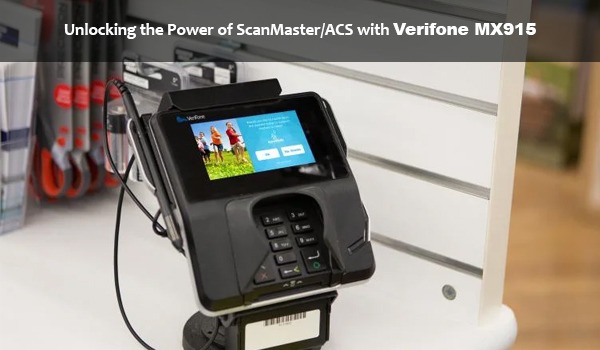
Introduction to Simplifying Your Finances
Understanding the Basics of Financial Management
So, you want to get your finances in shape but feel overwhelmed by the jargon and complex concepts? Let's go back to basics. Imagine your finances as a set of scales: on one side, you have your income and funding, and on the other, your expenses and deposits. Our goal is to keep these scales balanced. Simple, right?
Why Simplifying Your Finances Matter
Imagine living a life where you're not constantly chasing after payments or worrying about discrepancies in your account. That’s the beauty of simplifying your finances—it's not just about saving time; it's about achieving peace of mind. By keeping things straightforward, you can focus more on what matters most to you, be it family time, hobbies, or planning for the future.
Introduction to Daily Funding and Deposit Reconciliation
Here's where it gets interesting. Daily funding and deposit reconciliation are like the secret ingredients to keeping our financial scales balanced. Think of it as doing a little bit of tidying up each day so you’re not stuck cleaning a huge mess at the end of the month. Not only does this make managing your cash flow smoother, but it also gives you a clearer picture of your financial health on a day-to-day basis.
The Role of Daily Funding in Streamlining Finances
The Concept of Daily Funding and Its Importance
Daily funding is all about ensuring that your accounts have sufficient cash flow to meet daily operational needs. It's akin to checking the fuel gauge before a long drive. Adequate daily funding means you're always ready to cover expenses without delay, which in turn, reduces stress and fosters a steadier financial environment.
Steps to Implement Effective Daily Funding
- Start with a daily review of your cash position.
- Forecast short-term cash needs to anticipate upcoming expenses.
- Align your funding sources to ensure they're ready when needed.
- Regularly monitor and adjust based on actual cash flow.
Deposit Reconciliation: A Crucial Pillar in Simplifying Finances
Breaking Down What Deposit Reconciliation Means
In its essence, deposit reconciliation is the practice of matching your records with bank statements to ensure every transaction lines up. Think of it as proofreading an important email before sending—it prevents misunderstandings and mistakes.
How to Effectively Execute Deposit Reconciliation
- Consistently record your deposits and expenses daily.
- Regularly compare your records with bank statements.
- Address and investigate any discrepancies immediately.
- Utilize banking apps or software for real-time tracking.
Real-Life Examples: How Deposit Reconciliation Made a Difference
Consider the boutique owner who discovered recurring billing errors through diligent deposit reconciliation. This simple daily habit saved them hundreds of dollars per month, underscoring the power of paying attention to the details.
Merging Daily Funding and Deposit Reconciliation
Bridging the Connection Between Daily Funding and Deposit Reconciliation
Understanding how daily funding and deposit reconciliation work hand in hand to simplify finances is key. While daily funding ensures there's always enough cash for immediate needs, deposit reconciliation keeps track of these transactions, ensuring they're correctly accounted for. Together, they create a robust framework for managing financial health.
Practical Steps to Combine Daily Funding and Deposit Reconciliation
- Integrate both practices into your daily financial routine.
- Use technology to automate processes where possible.
- Review both your cash flow and reconciliation reports to catch issues early.
- Foster a culture of financial diligence within your team or household.
Exemplifying Success: How Daily Funding and Deposit Reconciliation Work Together
Imagine a scenario where a restaurant owner uses daily funding to manage operational costs while applying deposit reconciliation to verify all transactions. This dual strategy not only keeps their finances in check but also highlights areas for efficiency improvements, contributing to the overall success of their business.
Navigating Challenges in Daily Funding and Deposit Reconciliation
Identifying Potential Roadblocks
- Inconsistent tracking and record-keeping
- Overlooking small discrepancies that could lead to bigger issues
- Resistance to change from traditional to more streamlined methods
Mitigating Challenges and Finding Solutions
- Set aside dedicated time each day for financial reviews.
- Embrace digital tools for accuracy and efficiency.
- Educate your team or family on the benefits of these practices.
Lessons Learned: Overcoming Hiccups on the Journey to Simplified Finances
Remember, the path to streamlined finances isn't always smooth. However, by acknowledging setbacks as learning opportunities, you continuously improve your financial management skills, which is a rewarding journey in itself.
Implementing Into Your Routine
Incorporating this into your daily routine might seem daunting at first, but remember, it’s about baby steps:
- Find Your Perfect Time: Select a time of day when you can routinely commit to this task.
- Make It Pleasant: Whether it’s playing your favorite music or sipping on that perfect cup of coffee, make the process enjoyable.
- Celebrate Small Wins: Successfully reconciled a week’s worth of transactions? Treat yourself! Success, no matter how small, is still success.
Conclusion
Recapping the Importance of Daily Funding and Deposit Reconciliation
We’ve traveled through the essentials of daily funding and deposit reconciliation, emphasizing their significance in achieving a simpler, more transparent financial life. By embracing these practices, you pave the way to not just better financial health, but also to peace of mind.
Envisioning the Impact of Simplified Finances on Your Daily Life
Imagine opening your financial spreadsheets each morning and feeling a sense of calm and control. That’s the real impact of taking these steps towards simplification. It’s about making your finances work for you, not the other way around.
Future Prospects: Continuing to Evolve in Your Financial Management Journey
As you become more comfortable with daily funding and deposit reconciliation, remember that financial management is an evolving journey. Stay curious, open to new practices, and always look for ways to further simplify and streamline your finances.









